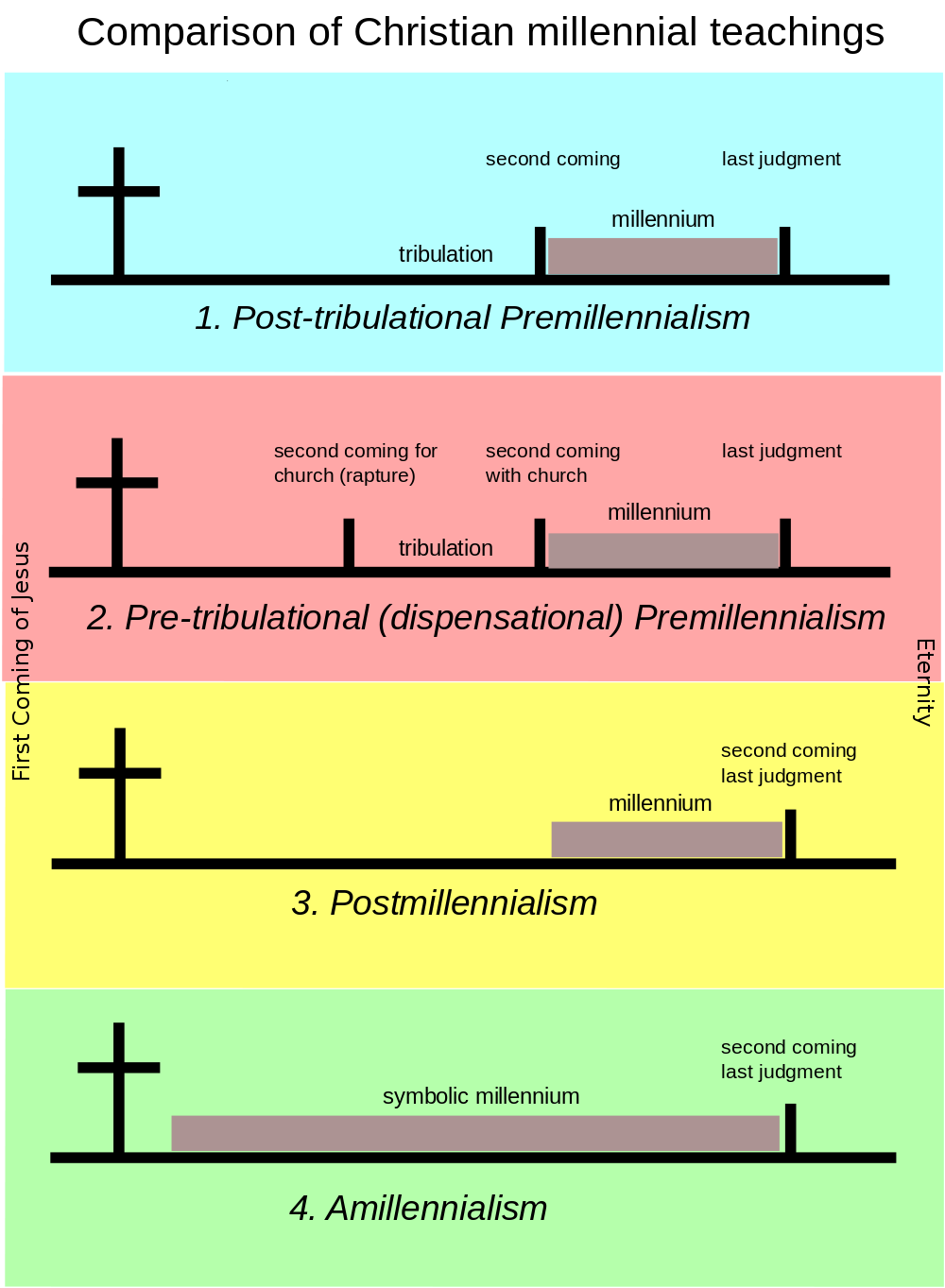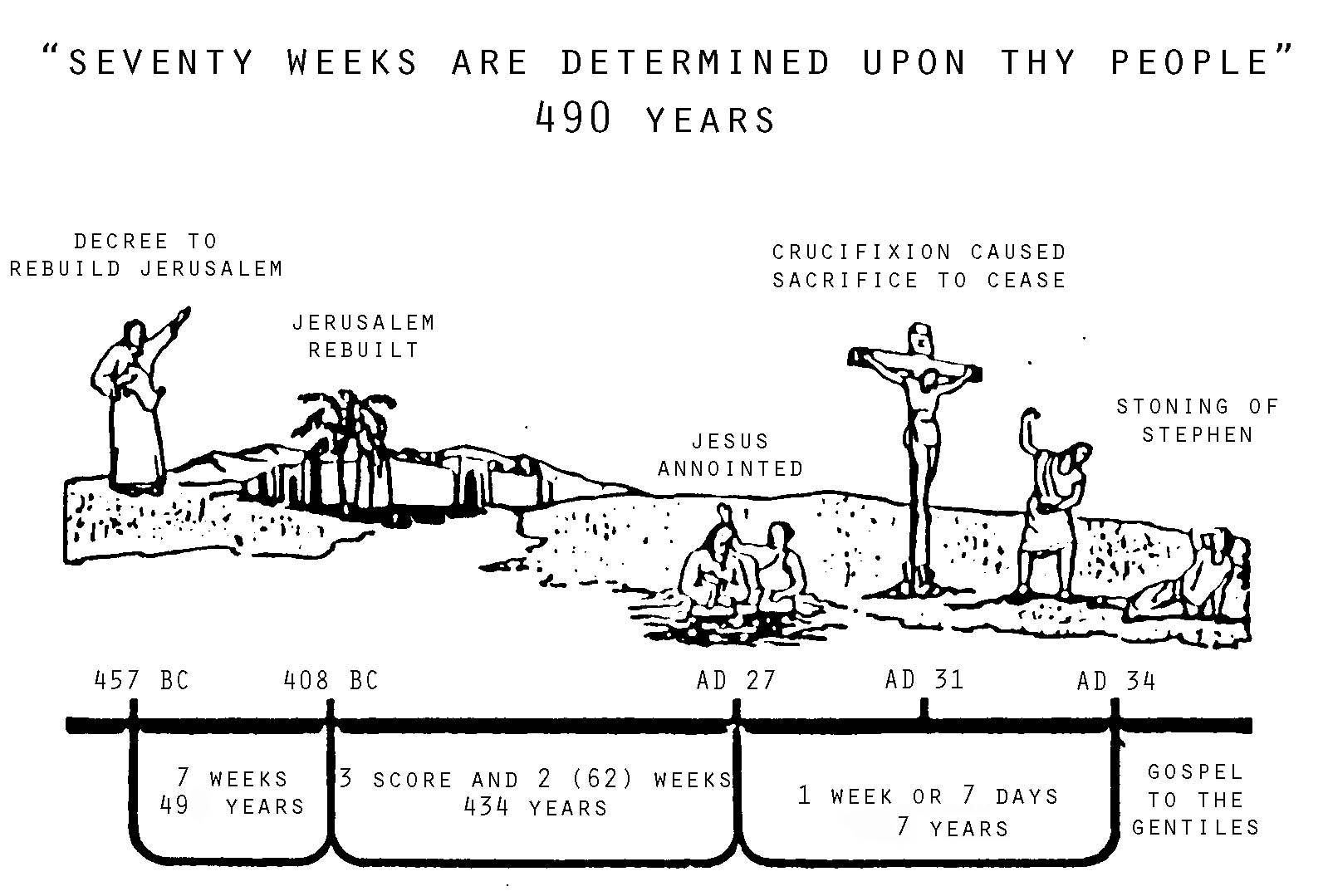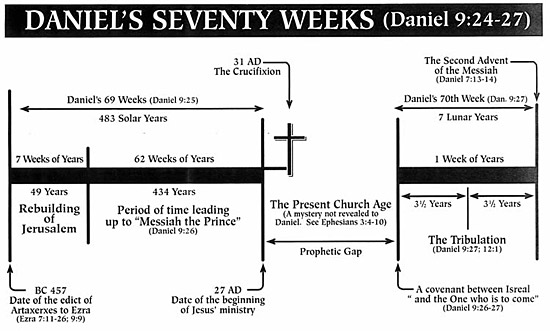I found this article, and thought it's a good contrast between dispensationalism and covenant theology (and how the two schools interpret a passage differently):
Quoting linked article---->I realize that many of my readers are unfamiliar with the term “dispensationalism.” In short, it is one of the many frameworks for interpreting or understanding the whole of scripture. The view is popularly known and represented by the “Left Behind” movie series. While it is thought by many to be an unimportant side topic relating to the “end-times” and the “rapture”, it really has more practical implications concerning the history of redemption, the Christian’s view of evangelism, the church, culture and the Kingdom of God.
In dispensational theology the church age is a provisional parenthesis designed to gather in the gentiles while God’s OT people, the Jews, are temporarily placed on the sidelines. In their view the church was never intended to be God’s primary instrument for the furtherance of his Kingdom, the Jews were. In fact, dispensationalists understand the church age to be a temporal, failing, dispensation that will culminate in it being raptured out of this world and in God returning his attention to the blood-line of Abraham.
On the flip side, covenantal theologians have insisted the opposite. Covenantal theologians believe that the church IS what God had in mind when he promised the OT people that his Kingdom would flourish throughout the earth. Yes, the blood-line of Abraham were to be blinded for a season, but they do not believe in two distinct peoples of God. Instead, believing Gentiles have been grafted into an already existing people, remain one in Christ, and are Abrahams offspring, heirs according to promise.
How both sides interpret the parable of the mustard seed reveals quite a bit about these polar opposite views.
He put another parable before them, saying, ‘The kingdom of heaven is like a grain of mustard seed that a man took and sowed in his field. It is the smallest of all seeds, but when it has grown it is larger than all the garden plants and becomes a tree, so that the birds of the air come and make nests in its branches.'” (Matthew 13:31-32)
In the dispensational view, this is a parable depicting something negative about the church. David Guzik says, “Some regard this as a beautiful picture of the church growing so large that it provides refuge for all the world. But this mustard seed plant has grown into a monstrosity, and it harbors birds – who, in the parables, are emissaries of Satan.” Similarly other dispensationalists such as Chuck Smith and Jon Courson of Calvary Chapel as well as J. Vernon McGee say the same. To the dispensationalist this is a parable about a church that eventually fails, growing into a world power and hosting all sorts of evil.
Covenantal theologians on the other-hand view this as a positive parable concerning the church. The puritan Matthew Henry even goes as far as to refer to the birds as the people of God, “The church is like a great tree, in which the fowls of the air do lodge; God’s people have recourse to it for food and rest, shade and shelter.”
What’s the true meaning of the birds in this parable? Is Christ optimistic about his church or is he pessimistic?
I’d like to think that when he stated that the gates of hell would not prevail against the church (Matthew 16:18) that he was being consistent. The OT sheds some light on this parable. The same picture is used in Daniel 4:11-12 to illustrate the breadth, power and fruitfulness of the babylonian kingdom under Nebuchadnezzar’s reign. The beasts of the field and birds of the air that found refuge in it represented the beneficiaries of the kingdom (all flesh found refuge in it). Again the same illustration is used in Ezekial 17:22-24; except this time it’s the Kingdom established by God and it happens to overshadow all other high trees. This is the Kingdom Israel has been waiting for. The same Israel God called a nation of priests and a holy nation in Exodus 19:6 and repeated to the church in 1 Peter 2:9. It’s related to the same set of Kingdom prophecies that Christ claimed was fulfilled in his reading of Isaiah 61 in Luke 4:16-21.
Regarding the church, dispensationalists flip the bird.
So what’s the big deal whether someone is optimistic vs. pessimistic? Well, it shows in our ecclesiology (how we do/view church). It shows in the surface level view of salvation as a post-mortem fire insurance. It shows in the church’s lack of desire to dialogue over scripture in the pursuit of unity. And it shows that instead of engaging the culture and recognizing our God-given vocations we’d rather be satisfied with the “earth-is-going-to-hell-in-a-hand-basket-so-why-bother” mentality ~
The “Bird” is the Word | Modern Pulpit



